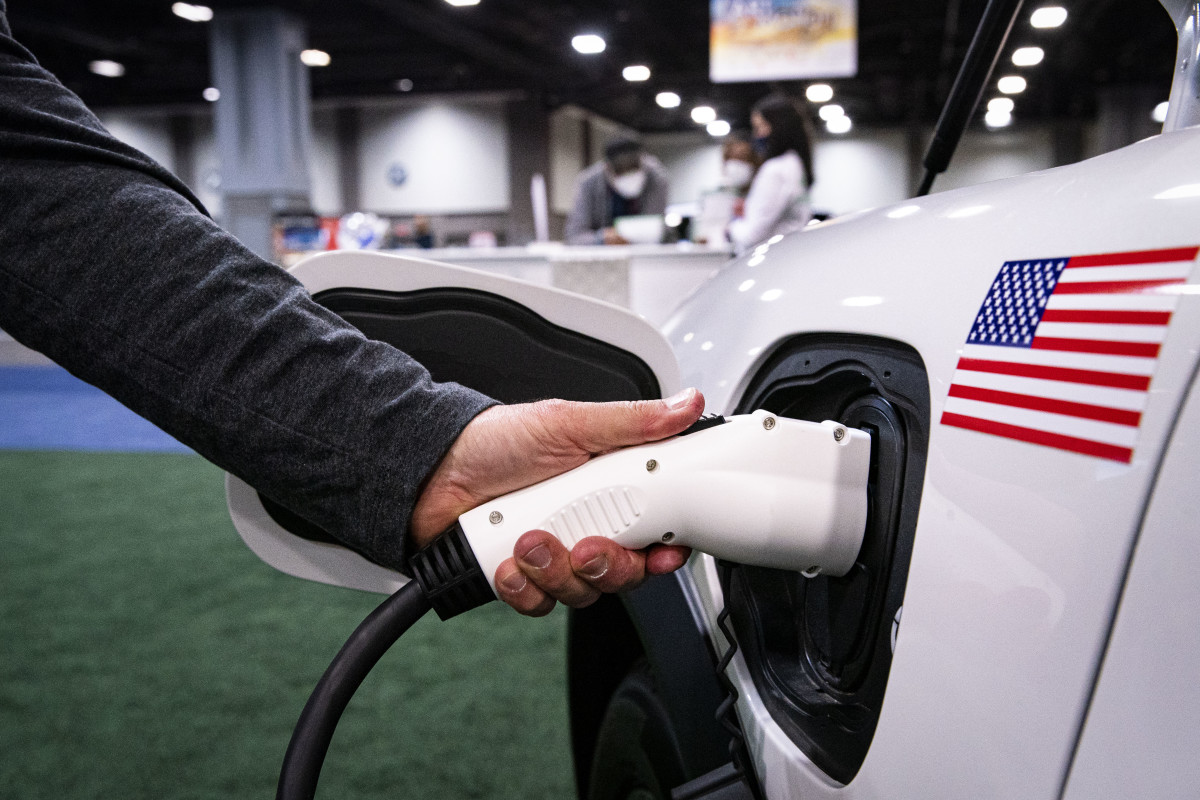
HOUSE APPROVES BILL THAT COULD PARALYZE US EV DEVELOPMENT
Product development is a team sport, and it is no secret that automakers need help adapting to the upcoming electric future.
Some automakers are seeking help from others; for instance, Hyundai and General Motors have just announced that they plan to collaborate on future product development.
Related: Hyundai and General Motors join forces to revolutionize future cars
In Japan, Toyota and Subaru are collaborating on future EVs and Nissan, Mitsubishi and Honda are teaming up to share technology.
But sometimes, the best people for the job are associated with what some may classify as enemies or adversaries, and the powers that be will do whatever they can to prevent American companies from collaborating with them.
The House's EV stopgap
On September 12, lawmakers in the U.S. House of Representatives passed a bill that has the potential to restrict electric vehicle tax credits and jeopardize critical partnerships that can dictate the future of American automakers.
The bill in question is the End Chinese Dominance of Electric Vehicles in America Act of 2024. Introduced by Rep. Carol Miller (R-WV), the bill would strip an EV's eligibility for IRA tax credits of up to $7,500 if the manufacturer uses battery technology licensed from China.
In a statement made after the bill's introduction in April, Miller argued that her bill would keep American taxpayer money out of Chinese hands.
"China, or any adversary for that matter, should not have any access to American tax credits. Narrowing the definition of the Foreign Entity of Concern expands opportunities for American manufacturing while protecting our resources and our people," Miller previously said.
"The Biden Administration’s dedication to the Chinese Communist Party embarrasses the United States, and Congress must lead when Joe Biden refuses to."
Though the majority Republican House was able to pass this bill, many of the concerns came from the other side of the aisle.
Rep. Debbie Dingell (D-MI) argued against her Republican statespeople that the bill would “lead to American job losses” and make it “harder for American companies" like the automakers in Detroit to compete. Additionally, Rep. Judy Chu (D-CA) also pointed out that Miller's bill contains a problematic provision that extends the list of entities barred from receiving IRA tax credits to include companies owned by a "citizen, national or resident” of China.
“This bill includes a harmful provision that would target immigrants who came to the United States from an adversary country, but who themselves have nothing to do with their governments of origin,” Chu said.
The White House also opposes the bill. In a statement dated September 11, they noted that the Biden Administration opposes it on the basis that it "would raise taxes on American consumers, punish American auto manufacturers, threaten good-paying auto jobs, undermine our Administration’s work to protect the American automotive supply chain from unfair Chinese competition, and set back efforts to achieve energy security and combat climate change."
More Business of EVs:
- Waymo finds new way to bring chaos to quiet city streets
- Gavin Newsom's 'EV mandate' is under U.S. Supreme Court threat
- BMW's clever, new EV app is a privacy nightmare
The Impact on Industry
Notably, one of the biggest opponents of the measure is the Shawn Fain-led United Auto Workers (UAW); the union representing the factory workers at Detroit's Big Three automakers.
In a post on X (formerly known as Twitter), the UAW voiced their opposition to the bill, noting that it is an “attack on good union jobs” and a blow to “nearly 2,000 battery manufacturing jobs in Michigan”.
Two of Detroit's Big Three automakers have already linked up in some capacity with "problematic" Chinese entities, namely for advanced EV battery technology by a company called Contemporary Amperex Technology Company, better known as CATL.
Ford (F) is currently constructing a new EV battery plant called the Blue Oval Battery Park near Marshall, Michigan. The now-$2 billion factory will produce 20 gigawatt hours of batteries and employ 1,700 people.
The problem is that lawmakers raised concerns about Ford reaching out to CATL to license the technology for use at the plant. When finished — which Ford estimates at sometime in 2026, CATL will train Ford staff to produce EV batteries using CATL lithium iron phosphate battery (LFP) batteries for Ford-branded vehicles.
Related: EVs have a problem Ford's partner aims to fix
Additionally, a new report from Reuters says that General Motors (GM) is in talks to buy EV batteries that would use technology from CATL, which will be assembled in the United States.
It is no wonder why Ford and GM would want to take CATL under its wing. At the Beijing Auto Show in April 2024, CATL unveiled its latest LFP-based EV battery, which eclipses most other EV batteries on the single issue boggling down potential American EV buyers: range.
The new battery, called the Shenxing Plus, boasts a driving range of more than 1,000 kilometers, or 621 miles of range on a single charge. According to CATL, the new LFP batteries are also capable of 370 miles of driving range after just 10 minutes of charging.
"Longer driving range and faster charging speed remains the key requirements for todays consumers," Huan said at the Bejing Auto Show. "Shenxing Plus enables you to travel freely and enjoy your life."
Related: Veteran fund manager sees world of pain coming for stocks
2024-09-15T23:10:38Z dg43tfdfdgfd